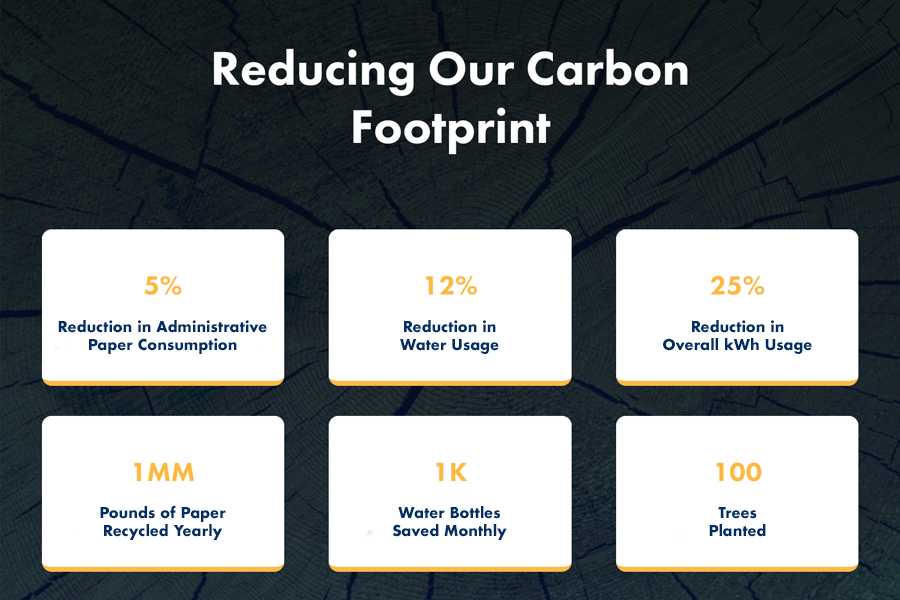The Direct Mail Industry is one of the few industries where the interests of the “green movement” and those of good business align. While this assertion might not seem intuitive at first, it is important to examine the industry away from one line jabs on the side of a Stonyfield yogurt cup (ironically made of infrequently recycled number 5 plastic). The fact is that Polaris Direct and others in the Direct Mail Industry have all been making strides towards helping to preserve our environment for many years. Not only is this due to our desire to be good neighbors, it is also simply good business. Without trees, a renewable resource, the direct mail industry would not exist. With this in mind, direct marketers have modeled their businesses to insure that the resources essential to the industry are used responsibly and sustainably.
 Increasingly companies are under pressure to ensure that all aspects of their businesses are eco friendly and cause minimal environmental impact. One of the main targets for those fighting to protect the earth has been the direct mail industry because of its use of large amounts of paper and the misconception that old growth or virgin forests are indiscriminately cleared to supply raw material for our products.
Increasingly companies are under pressure to ensure that all aspects of their businesses are eco friendly and cause minimal environmental impact. One of the main targets for those fighting to protect the earth has been the direct mail industry because of its use of large amounts of paper and the misconception that old growth or virgin forests are indiscriminately cleared to supply raw material for our products.
Some facts for consideration1:
- In 2008 more than 57% of paper consumed in the US was recovered for recycling, a rate that has been steadily increasing since.
- Paper is recycled at significantly higher rates than other materials (Glass: 24%, Plastic: 7%).
- Less than 10% of US power comes from renewable sources, but in the paper industry that figure is greater than 60%.
What is clear is that our industry has been doing its part to conserve the environment, Polaris also recently took the DMA Green 15 pledge to improve our environmental footprint and our “triple bottom line” (people, planet and profit). In addition to continuing programs that recycle our paper waste, we recently purchased a cardboard bailer that enables us to recycle all of the cardboard used to ship products (envelopes, buckslips and brochures) into our facility.
The team of dedicated employees responsible for many of the improvements seen at Polaris is led by our Facilities Coordinator, Cash Whittemore. Through their efforts we have significantly decreased our eco footprint. One of the most effective projects recently undertaken at Polaris was replacing the larger, older, inefficient lights in our warehouse with motion activated sensors and more efficient bulbs. Before the change the lights had to be left on all day, even in areas with little or no traffic, because they required 15 minutes of warming to attain full brightness. The new lights not only brighten instantaneously, but also automatically turn off when no one is in the area. This one measure alone has saved Polaris thousands of dollars a year in electricity costs.
Further investigation into the energy efficiency of our building was undertaken by the Polaris team in order to identify potential savings. All entry points of the building and other areas where heat could be escaping were identified and made more efficient. This initiative decreased Polaris’s heating bill by 22% in the winter of 2009/2010. We are currently looking into the feasibility of a plan to redistribute the heat generated by our machinery into cooler areas of our building during the winter months. In short; we are always looking for new ideas from our employees about what we can do to cut costs and increase efficiency, actions that will not only benefit our customer but also our environment.
1 Statistics taken from “Why Print Is Green” by The Print Council, 2010.



